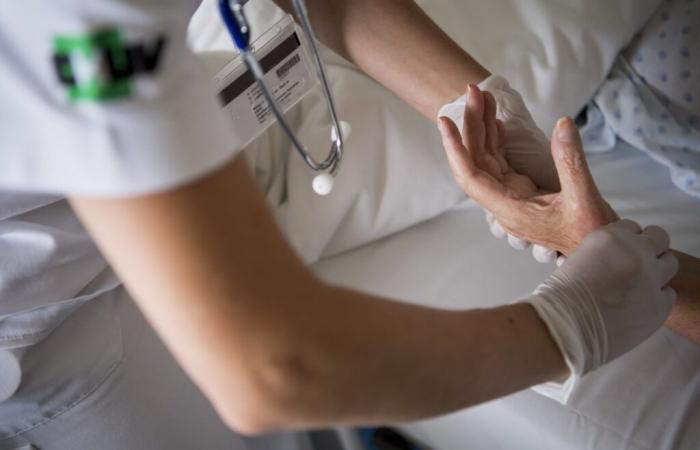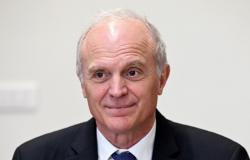A few months ago, Provost Bertrand Zahno experienced some health problems. While he was recovering from a heart operation, he suddenly suffered a severe attack of hypertension, coupled with a rapid weight gain (5 kg in 5 days, following an accumulation of water in the legs). He then went to the emergency room at Moutier hospital.
“There, I was taken care of, then they explained to me that normally, I would have to stay in the hospital for five days. But that if I agreed and the conditions permitted, I would I also had the possibility of returning home with medical monitoring at home,” he says.
He accepts the proposal and can go home that same evening. “They put an cuff on my arm, a device on my fingertip, a patch under my armpit for the temperature, another on my chest… No wire, nothing. They just gave me a box that looked like to a cell phone and which should not be touched since it allowed data to be transmitted to the medical team”, he continues.
Every day, a nurse comes to see him, to take stock of the situation, and also to put the monitoring equipment back in place after his shower. “I really appreciated this home hospitalization. It gave me a certain freedom. I could get up whenever I wanted. The nurse was very available. Proof that the system works: one evening, my blood pressure monitor had a problem. failed Just a few minutes later, the nurse called me,” he testifies.
Ninety beneficiaries
Like Bertrand Zahno, some 90 patients from the Arc Network were able to benefit from home hospitalization in 2024, the first year of implementation of this offer. “The idea was born with the reflection on the VIVA integrated care network, but we quickly dissociated the two. We started from the principle that the sooner the patient can return to his environment, the more beneficial it is for him, but also for health costs”, explains Alexandre Omont, director of the Réseau de l’Arc, who recalls that hospitalization costs between 800 and 1000 francs. per day and per patient.
The Arc Network has thus set up a specialized team, which includes five nurses, four doctors, a pharmacist and pharmacy assistants. Depending on needs, physiotherapists can also provide support.
Swiss






